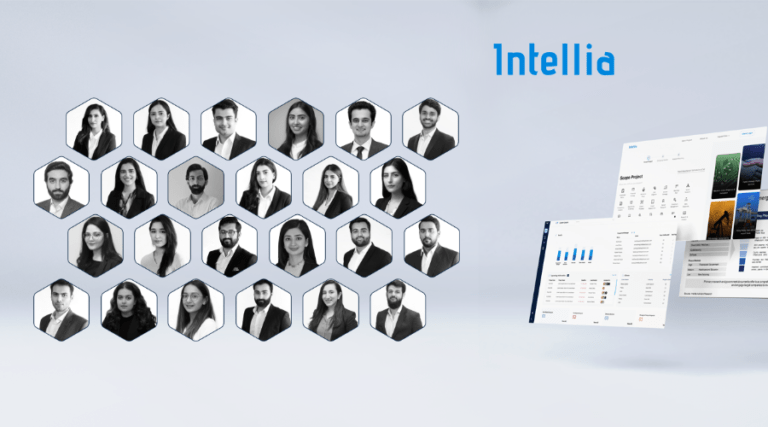SAS named a Leader in IDC MarketScape for Responsible AI for Integrated Financial Crimes Platforms

SAS was recently named as a Leader in the IDC MarketScape: Worldwide Responsible Artificial Intelligence for Integrated Financial Crime Management Platforms 2022 Vendor Assessment (doc #US47457622, July 2022).
The report offers IDC MarketScape’s first-ever comparative analysis of the banking industry’s top financial crime management solutions powered by AI. It includes SAS and eight other vendors – all offering standalone AI applications to prevent and detect fraud and anti-money laundering (AML).
“Only a more holistic, AI-based and real time approach to fighting fraud and financial crime can deliver the agility banks need to keep ahead of the ever-changing and increasingly sophisticated threats that define today’s risk landscape,” said Ritu Jyoti, group vice president, artificial intelligence and automation market research and advisory services IDC. “SAS has proven itself at the forefront of artificial intelligence and machine learning-powered solution innovation, offering an end-to-end solution that enables financial services organisations to combat fraud, money laundering, and terrorist financing across channels and business lines – all from a single, enterprise-wide platform.”
Responsible AI: “emerging as a dominant prerequisite for AI,” according to IDC
The IDC MarketScape report defines responsible AI as a framework for fostering an organisation’s trust in its AI solutions, underpinned by five foundational pillars: fairness, explainability, robustness, lineage, and transparency. “Responsible AI is emerging as a dominant prerequisite for AI, and businesses must take a proactive stance,” the report advises.
SAS’ dedication to responsible innovation is a company guide star, coordinated by the cross-functional SAS Data Ethics Practice.
“Best-in-class platforms must be trustworthy to achieve long-term effectiveness and resilience,” said Reggie Townsend, Director of the SAS Data Ethics Practice. “A financial institution’s ability to identify and alert for suspicious behaviour must be fairly distributed, transparent for auditing and explainable to those affected if their decisions are to be trusted.”
SAS simplifies data integration, enables robust modeling and real time monitoring
The IDC MarketScape’s analysis, based on vendor interviews, end-user feedback, and publicly available information, found that the simplicity of SAS’ data integration capabilities on a single platform allows financial institutions “to create a more accurate predictive model tuned to an organisation’s needs” and “gives enterprises the flexibility to scale up or out as their business changes and respond faster to new threats as they arise.”
“Embedded machine learning methods detect and adapt to changing behaviour patterns, resulting in more effective, robust models,” the analysis states. “Key technology components let enterprises easily spot anomalies for each customer. In-memory processing delivers high-throughput, low-latency response times – even in high-volume environments – enabling enterprises to score 100% of transactions in real time.”
In extoling SAS’ strengths, the report notes, “SAS has achieved a strong strategy functionality and offering, growth, and capabilities in trustworthy and ethical AI and customer satisfaction,” adding that “customers liked that SAS has the tools to help balance between accuracy and explainability of the machine learning models.”
The IDC MarketScape analysis also recognises SAS’ future-forward AML and fraud software development: “SAS’ business priorities include enhanced supervised learning, visualisation, and increased integration, all of which will help improve financial institutions’ ability to fight financial crime with superior efficiency and accuracy.”
A competitive edge
Responsible AI-based fraud and financial crimes management is about more than improving detection rates and reducing false positives. Industry leaders have come to recognise it as the lynchpin to wider enterprise decisioning that can help financial firms differentiate themselves in an increasingly competitive sector.
“The explosive acceleration of digital banking and payments has made AI and machine learning table stakes in detecting fraud and suspicious activity while nimbly adapting to swiftly shifting risks,” said Stu Bradley, Senior Vice President of Fraud and Security Intelligence at SAS. “Those that approach such innovation responsibly can help bridge operational silos, boost efficiency, fuel product and service innovation, and optimise experience across the customer journey. All while, most importantly, promoting trust in technology and automation.”
According to Stephan Wessels, SAS Head of Customer Advisory for South Africa, said: “We are exceptionally proud of this accolade, and it comes at an interesting time for the South African market.”
During the standing committee on finance last week the Financial Intelligence Centre (FIC) presented its proposed changes to the Financial Intelligence Centre Act (FICA) that included broadening the scope of businesses defined as ‘accountable institutions’ under its purview. The proposed changes have been presented for public discussion and feedback, however, the intention of these amendments is to support the FIC in identifying proceeds of crime, combat money laundering and terror financing, while supervising and enforcing compliance with FICA.
“Understandably there are some market concerns about how the proposed amendments will be applied should they come to fruition, and the impact it could have on businesses by adding more ‘red tape’ and the potential administrative and costs burden, particularly for small- to medium-sized enterprises. However, we cannot overlook the burdensome cost of financial crimes to businesses and the economy either. And we are proud to be able to offer world class, AI-powered advanced solutions to our customers in Africa. Our end-to-end solutions are compliant with international best practice standards as well as local jurisdictional regulations, and adoption and use of these solutions can help businesses to meet their evolving compliance obligations,” adds Wessels.
Discover why other analysts also consider SAS a fraud and AML technology leader by visiting SAS online.







